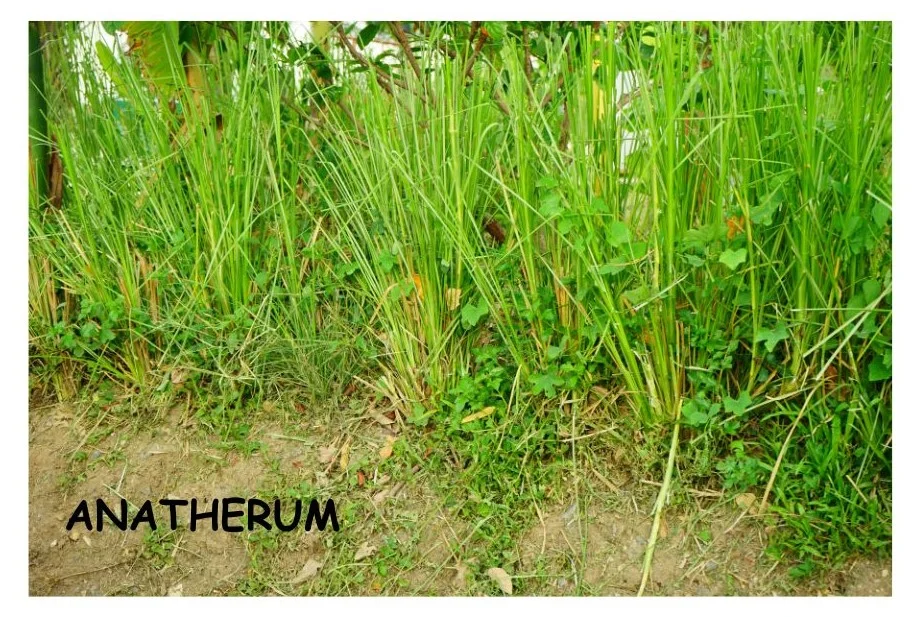Anatherum is a homeopathic remedy acknowledged for its high efficacy in treating skin disorders, characterized by painful swellings progressing to suppuration.
It is also beneficial in addressing glandular inflammation, presenting a distinctive drug picture.

Table of Contents
ToggleSOURCE INFORMATION
- Kingdom: Plantae
- Division (or Phylum): Angiosperms (Flowering plants)
- Class: Monocots
- Order: Poales
- Family: Poaceae (Grasses)
- Genus: Anatherum
- Species: Anatherum muricatum
Common Name: Cuscus or Anatherum
Origin: Anatherum muricatum, commonly known as Cuscus, is a species of grass native to Southeast Asia and is widely found in East India. It is known for its historical use in traditional medicine.
Historical Facts
- Traditional Medicine: In traditional systems of medicine, various parts of Anatherum muricatum have been utilized for their medicinal properties. Different cultures in East India have historically incorporated this grass into their healing practices.
- Culinary Use: In some regions, Anatherum muricatum has also been used as a food source. While it may not be a staple, certain communities have incorporated parts of the grass into their diet.
DRUG PATHOGENESIS
- Skin Affections: Anatherum demonstrates effectiveness against various skin issues, including herpes, ulcers, tumors on the scalp, wartlike growth on eyebrows, boils, and tumors on the tip of the nose.
- Urine Symptoms: It is indicated for turbid, thick urine with mucus, constant urging, inability to retain even the smallest quantity, and involuntary urination, often associated with cystitis.
KEY CHARACTERISTICS
- Skin Remedy: Anatherum is recognized as a potent skin remedy, particularly effective in cases of painful swellings leading to suppuration.
- Glandular Inflammation: It exhibits a notable impact on glandular tissues, addressing inflammation and related symptoms.
- Head Pains: Anatherum manifests unique head symptoms, where pains pierce the brain like pointed arrows, often worsening in the afternoon.
PARTICULAR DISEASE SYMPTOMS
- Head Pains: Characterized by pains that pierce the brain like pointed arrows, particularly worsening in the afternoon.
- Sexual Symptoms: Anatherum is indicated for chancre-like sores, scirrhus-like swelling of the cervix, and swollen, indurated breasts with excoriated nipples.
- Skin Disorders: Addresses diseased and deformed nails, offensive foot-sweat, abscesses, boils, ulcers, erysipelas, pruritus, and herpes.
REMEDY RELATIONSHIP
- Comparison: Anatherum is often compared with other remedies like Staphisagria, Mercurius, and Thuja, especially in cases of skin disorders and suppurations.
DOSE
- Administer Anatherum in the third potency.
FREQUENTLY ASKED QUESTIONS
What conditions is Anatherum effective for?
- Anatherum is particularly effective for skin disorders, painful swellings leading to suppuration, glandular inflammations, and various urinary symptoms.
How does Anatherum affect the head?
- The characteristic head pains are described as piercing the brain like pointed arrows, especially worsening in the afternoon.
Can Anatherum be used for urinary issues?
- Yes, Anatherum is indicated for turbid, thick urine full of mucus, constant urging, inability to hold urine, and conditions like cystitis.
Difficult Words Explained
- Suppuration: The process of forming and discharging pus.
- Cystitis: Inflammation of the urinary bladder.
- Scirrhus-like: Resembling or having characteristics of scirrhus, a hard cancerous tumor.
- Excoriated: Skin that is chafed or abraded.
- Pruritus: Itching of the skin.
- Glandular: Relating to or affecting glands, particularly the lymphatic glands.
